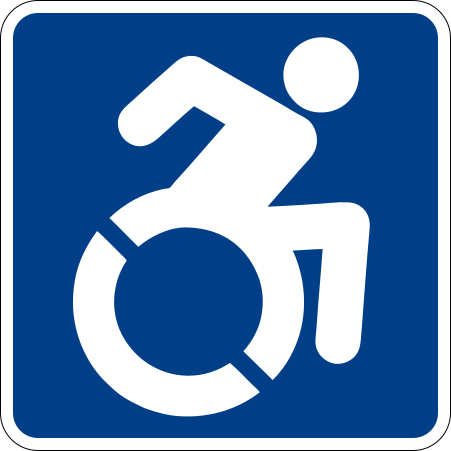
Recently, I was facebooking and came up with an interesting post of one of the friends of mine about his visit to the center for physically disabled people. In his post he wrote about a girl who shared her life story and thoughts about it. I was really touched and, eventually, was inspired to write about it. The original story was written in Kazakh. I will do my best not to change the message translating the story.
It was a hot summer. My mother and I were at a doctor and after medical check we were given the list of medicines that we had to buy. Then on the way to the drugstore I have noticed that some people were looking at me sitting on wheelchair with a great sympathy, others were passing with pride and arrogance. Then I thought looking at them: “If I were able to walk like these people would I treat the same as they do?” Most likely it will be otherwise. We reached the drugstore and my mother left me outside and entered there.
I was sitting and moving my wheelchair. The sun was shining brightly, flowers smelled fragrantly. Suddenly, a woman passing by came up and was trying to find some money in her pocket. “I don’t need your money”, I said with anger and with pain questioned myself:”Do I look so helpless and pitiful?”. “I am not a beggar, I don’t need your money”, repeated I and another man came up and said: “Better give me that money, to the beggar like me”. The man looked slovenly and he smelled of alcohol. The woman gave him the money and went along.
Coming back home I started to speculate about those people who can see, hear and walk on their own but they became baggers and continue to harm their health. Whereas people like me who can’t even make a step on their own still striving and trying to become as everyone else.
Who is really disabled then?
The issue raised in this life story is vital. It has a direct relation to the inclusion in education which is considered as a right but difficult way to choose. Different stakeholders have different perspectives and most of them are skeptical about it. First and foremost precondition for inclusive education to become successfully implemented is people’s readiness to accept those “unusual” people as they are. That is to say, to create inclusive society. It is social values and perception which determine whether to include or exclude a specific characteristic of an individual. As the Department of Economic and Social Affairs report defines:
“Social inclusion of the excluded groups can only happen
if everyone becomes “part of the group” that defines the culture,
values and standards of the society in which they live” (p.32)
Labeling them as people with special needs or Russian equivalent “люди с ограниченными возможностями” (people with limited opportunities) we define and affect people’s attitude towards them (Actually, we are all with limited opportunities). This is a result of social identity, meaning person’s self-conception derived from the group they were categorized to. As a rule, people want to possess a positive identity where they are valued and respected. Otherwise, in the society where there is an imbalance between the individual’s power may end up with the process of social exclusion (DESA, 2009). To achieve the social inclusion it is necessary to change the meaning and values associated with unfavorable characteristics.
This can be achieved by raising people’s awareness with help of education system, mass media and social campaigns. People have to realize that inclusive education doesn’t necessarily mean studying with disabled people. Instead, inclusive education is aiming to find and focus on what a student can do. It is clear from this point that every child regardless of his/her level of capacity is going to benefit from the education which is inclusive. Undoubtedly, it is not an easy task to make people to “embrace” people who are excluded from the first attempts. In this case, media and social campaigns is going to become important stakeholders in this essential but challenging process.
Going back to the story, it is possible to draw a conclusion that these people do want us approach them better and want to become a part of the community which is called “Humankind”.
P.S. Food For Thought:
If you fail to see potential in the person but only see person’s disability, then who is blind?
If you cannot hear your brother’s cry for help and justice, then who is deaf?
If you cannot stand up for the right of all people, then who is cripple?
If you cannot have the patience, the tolerance and understanding for individual differences, then who is mentally-handicapped?
(retrieved from: http://www.gg.rhul.ac.uk/ict4d/disability.html)
References:
DESA. (2009). Creating an Inclusive Society: Practical Strategies to Promote Social Integration.